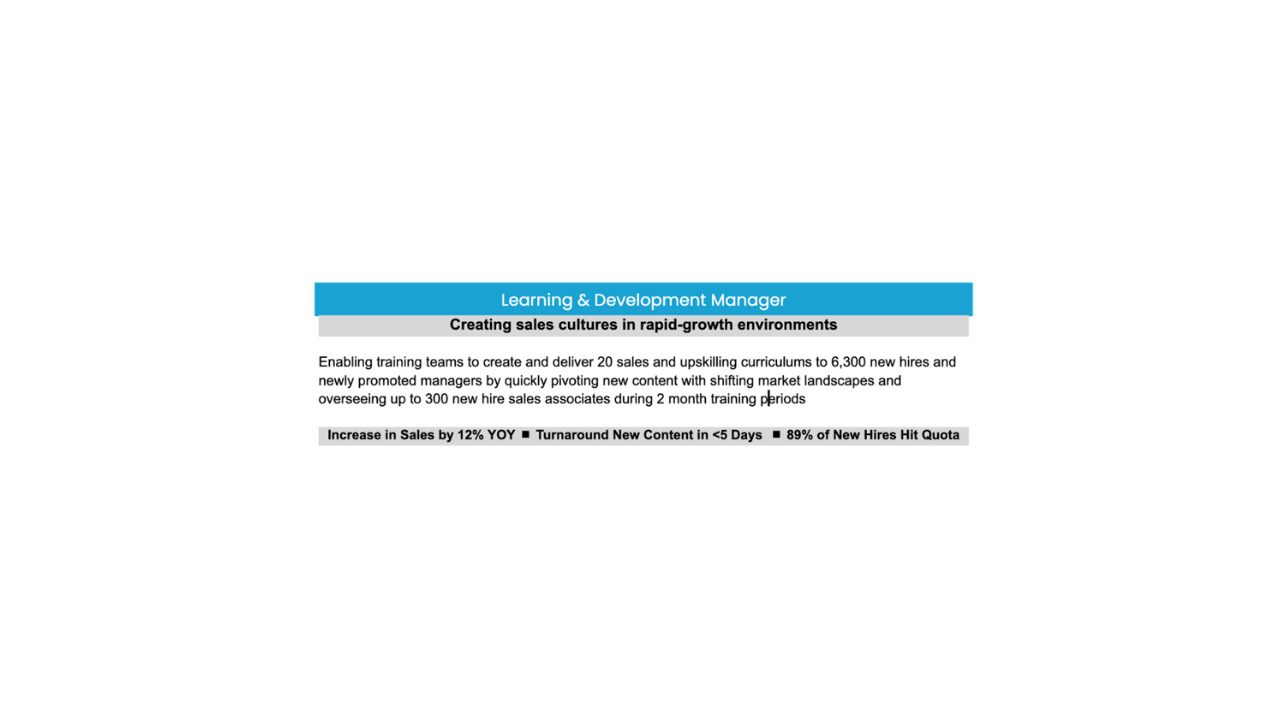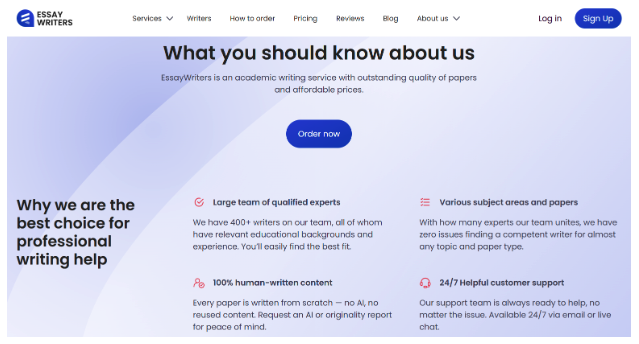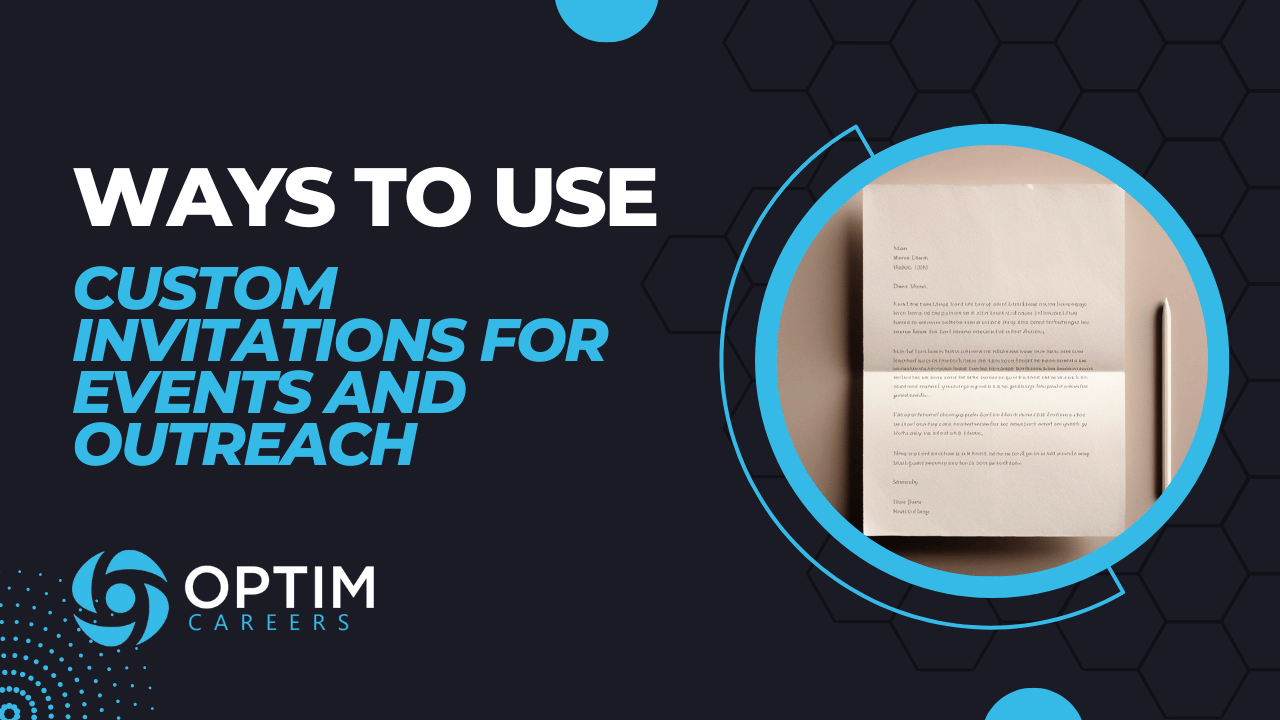5 Resume Subtitles Your Resume Needs in 2023
A well-crafted resume is a critical tool for job seekers in any industry. It is often the first impression a potential employer has of a candidate, and it can make or break the chance of securing an interview. While there are many different ways to structure a resume, there are a few key subtitles that every job seeker should include to make their resume stand out. In this article, we will explore five resume subtitles that are essential for any job seeker, some optional subtitles to consider, and some you should avoid.
Mandatory Resume Subtitles
Contact Information
This is the first section of your resume and should appear at the top of the page. Although some resume writers warn not to put this section in the header of your document, we tested it on over a dozen applicant tracking systems (ATS), and placing this section in the heading had no negative impact.
Optim resume writers all agree that placing this section in the header of your document ensures that your contact information is displayed on all pages. Today, most resumes are read on a screen, but in the rare instance someone prints your resume, the last thing you want is the page with your contact information missing when it arrives on a hiring manager’s desk.
This section should include your name, phone number, and email address. Some other optional items you may wish to include may be your city and state, LinkedIn profile URL, or a link to your portfolio. This section usually requires no subtitles.
Related Article: Why Might Location Be Important When Searching for a Job
Here are a couple of simple examples of what this section could look like.
Resume Summary
Rather than writing a generic summary about how many years of experience you have and how dynamic you are, consider writing a resume trailer. Think of the opening of your resume like a Netflix movie trailer. The best movie trailers have a few things in common. First, it’s clear what the movie is about. And second, it’s loaded with the best scenes from the movie. It’s exciting and it compels us to hit the play button and watch the show. The opening of your resume should do the same thing.
It should tell the hiring manager and recruiter what you do, the problem you solve for them, who you solve that problem for, and how you solve that problem. It should also be littered with specific evidence that shows you are good at solving this problem. You can access Optim’s proprietary trailer formula and write yours using the Weekend Resume Makeover.
This section belongs at the top of your resume, below your contact information. Keep this section brief. It should only take up two to three lines of text. Some older resume writing styles include an objective instead of a summary. You will want to replace your objective with this summary formula so your resume doesn’t look outdated or irrelevant. In today’s fast-paced work environment, the hiring manager and recruiter know what your objective is - it is to land the job you applied for at their company, doing the type of work they listed in the job advertisement.
The subtitle for this section should be the job title you are applying for. Don’t waste words by writing “profile” or “summary.” Instead, title this section with the job you want. Tell them that this is a resume about a Sales Manager or a Controller.
Here is an example of a great resume summary.
Work Experience Section
If you have relevant professional experience, employers will want to see this next on your resume. Many people still use the traditional resume format which lists skills after their summary, but for many, this 20-year-old format is probably not the best way to deliver your message about being the candidate who can solve their problems. A skills section is usually void of any context. It doesn’t tell whether you are good at something or the context around it. In fact, the way most people write skills sections means very little. When we examined heat map studies of hiring managers and recruiters reading resumes, most of them skip right over the skills section. Instead of writing your skills, get straight to the punch - your work experiences.
This section along with your summary is the most important section of your resume because this is where you will support the message you delivered in your summary and substantiate your claims. Your work experience will be the longest section of your resume, taking up one to two pages for many.
The most important thing to remember when writing your work experiences is that this is not a documentary of every job you’ve ever held and everything you’ve done at each of those jobs. Rather, use this section as an opportunity to show how you are good at solving the problems your next job requires you to solve. Find similar or parallel experiences and write about those.
Related Article: Skills vs. Experience And How to Write Them
You can also include things such as internships, personal projects, and freelance work.
When titling this section you could use subtitles such as the following:
Career Path
Experience
HR Experience
Web 3.0 Experience
Here are some examples of work experience and subtitles.
Education Section
For most professionals, this section will come after your work experience. However, if you’re in a field where the majority of your peers do not hold a degree, and your degree is seen as valuable, you may consider moving this section above your work experience. For example, if you were a loan processor and held a Bachelor's degree, you may consider elevating this section above your experience. There are 140,000+ loan processors in the US alone. Of those, less than half hold a degree. Since you’ve already bought and paid for that credibility - use it!
You could also combine this section to include certifications or licenses as well, listing your education first, followed by your certifications. Be sure that if you list certifications, they are ones that hiring managers will care about. Unfortunately, listing certifications from Coursera or LinkedIn Learning won’t matter much. But listing your PMP or CPA will.
Whether you choose to list graduation dates is up to you, but personally, we don’t think it’s anyone’s business when you graduated. The fact that you graduated is what matters. Also, avoid listing your GPA unless it was a 4.0. You never know who is reading your resume and listing your GPA could expose you to risk. If the hiring manager reading your resume was that perfect student, then anything less than a 4.0 could be viewed unfavorably. In addition, if you don’t list it, many employers won’t even think to ask.
When titling this section you could use subtitles such as the following:
Education
Education and Certifications
Education and Licenses
Apprenticeships (for trades)
Technology
The final must-have section for your resume is a technology or software skills section. In this section, you will list the software you are proficient with. This can make a difference in many professional roles. Although each company will set up its instance of a particular software differently, the ability to navigate around the interface indicates that your learning curve may be shorter than someone who has never used the software before.
In this section, you may list things like accounting software, programming software, client relationship managers, learning management systems, applicant tracking systems, or remote communication software such as Slack. If it is relevant to the job you are applying for, include it here.
When titling this section you could use subtitles such as the following:
Technology
Software
Programming Skills
Database Skills
Optional Resume Subtitles
Outside of the standard five subtitles, there are some additional subtitles you may wish to include depending on your unique situation and career path.
Volunteer Experiences
If you are applying to a mission-driven company and you have relevant volunteer experiences, this may be worth including on your resume. This section can be used to show your impact on communities, your character, or even your leadership abilities.
When titling this section you could use subtitles such as the following:
Volunteer Activity
Community Involvement
Languages
If the job requires you to speak or write another language, you’ll want to include this section to highlight what other languages you can speak or write proficiently. Job descriptions may not indicate other languages as a requirement, but if you’re going to manage a warehouse in Southern California, speaking Spanish is undoubtedly an asset and you should include this section when you can. If you’re going to be involved in contract negotiations with plants in China and you speak Mandarin or Cantonese, you may want to include that on your resume. These are only two examples of where your language abilities could give you an edge. And if it gives you an edge, you need this section.
Do not include a language section only because you speak another language though. This section should only be included when your language ability benefits the employer reading your resume.
When titling this section you could use subtitles such as the following:
Other Languages
Language Proficiencies
Publications
If you have been published or are in a field where you will be expected to publish articles or other works, this is an important section to include. Use a subtitle called “Publications” when writing this section.
Clinical Experience
In many healthcare resumes for individuals looking to take the next step, including clinical experience may be a way to show you’re ready and qualified. This section can also offer new context in terms of the types of experience you have. For example, if you’ve only worked in Cardiovascular Thoracic environments as an RN, but you recently completed a Nurse Practitioner clinical experience in Pulmonary Critical Care, you’ll want to include this section to show the new environment - especially if you’re applying for a role in Pulmonary Critical Care.
When titling this section you could use subtitles such as the following:
Clinical Experience
Nurse Practitioner Clinical Experience
Physician Assistant Clinical Experience
Professional Associations
If you are involved in a professional association such as the Institute of Management Accountants, the Society for HR Management, the Project Management Institute, or Women in Sales, you may want to include these on your resume. Many of these are well-recognized organizations within their respective spaces and do carry some weight. Professional associations often have chapters as well and if you’ve served on a chapter or regional board, including that in your resume can add credibility.
When titling this section you could use subtitles such as the following:
Professional Affiliations
Professional Associations
Memberships
Subtitles Not to Include on Your Resume
There are also some subtitles you may wish to avoid on your resume. These can make your resume look outdated and take up valuable space with little return value.
Resume Objective
Most resume writers and recruiters agree that including a resume objective is unnecessary. By submitting your resume for a job, you are indicating your objective to obtain this job. While it may seem nice to write about the type of organization you are looking for and the type of work you enjoy, that information is best reserved for the interview process.
Skills
The way most people write skills sections conveys very little value and most hiring managers skip right over them. Rather than writing a laundry list of, what often seems random, skills, include your skills in the context of your work experiences and within the resume summary. If you want to know more about how to write skills in a resume effectively, read the article Skills vs Experience in a Resume.
In Summary:
You should include the following subtitles in every resume: Contact Information, Resume Summary, Work Experience, Education, and Technology
There are many ways you can title each section, use subtitles that make the most sense for you
Consider including optional subtitles in your resume if they convey value to the reader
Avoid resume objectives and skills sections that convey very little value to the hiring manager or recruiter
















